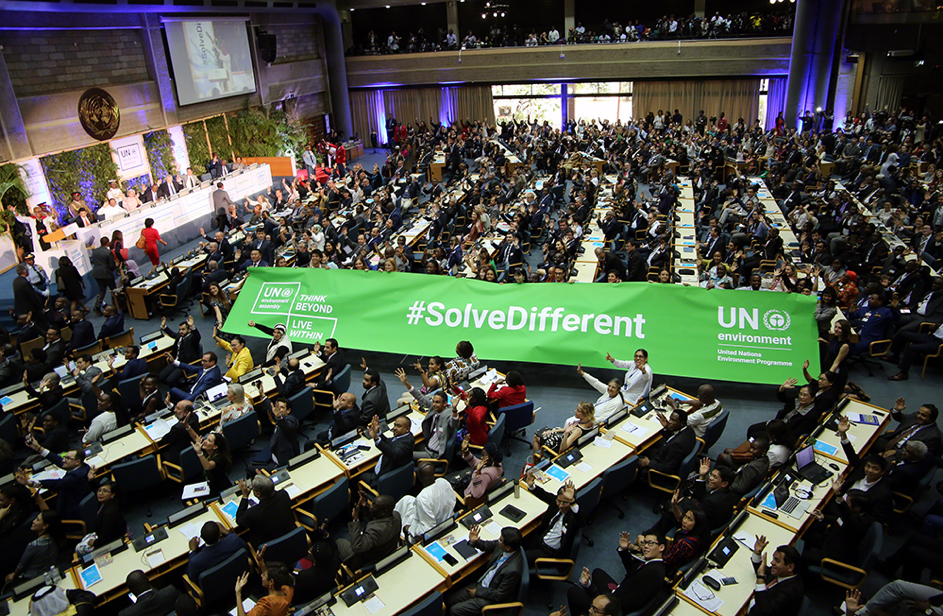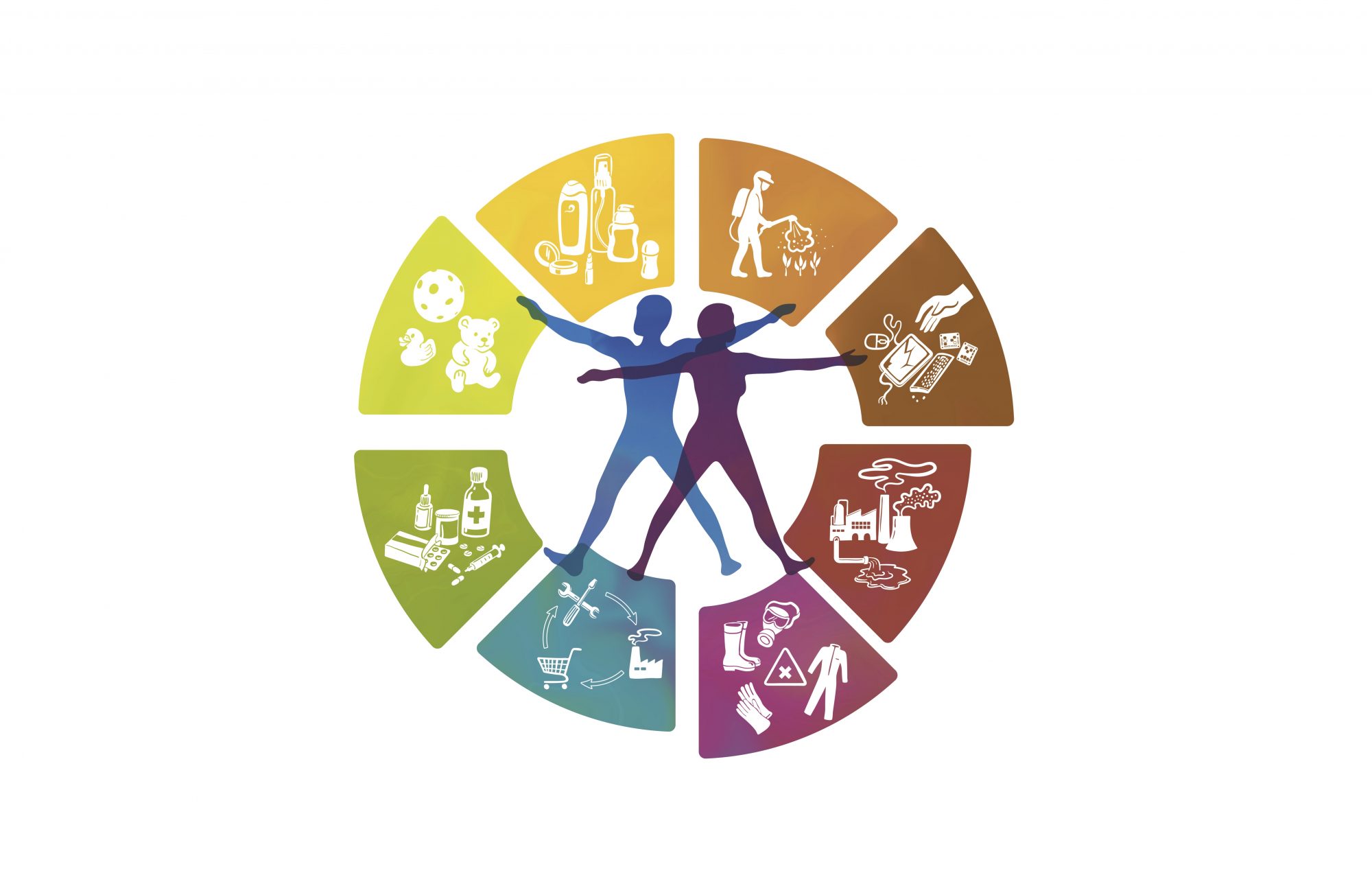
The fourth session of the UN Environment Assembly (UNEA-4) was held from 11-15 March 2019 in Nairobi, Kenya. Under the motto “Innovative Solutions for Environmental Challenges and Sustainable Consumption and Production”, UNEA-4 addressed environmental challenges related to poverty and natural resources management, including sustainable food systems, food security and halting biodiversity loss, life-cycle approaches to resource efficiency, energy, chemicals and waste management and innovative sustainable business development at a time of rapid technological change (UNEP 2019a). Tragically, the assembly was overshadowed by the Ethiopian Airlines plane crash on March 10. We grieve with the global community for the 157 people and colleagues who perished while en route to Nairobi.
Anna from the MSP Institute attended UNEA-4 to work together with other women’s groups and feminists of the Women’s Major Group (WMG) to increase attention, inter alia, to gender and chemicals issues.
At UNEA-4, many side-events discussed the challenges of chemicals, waste and pollution. The new synthesis report of the second edition of the Global Chemicals Outlook (GCO-II) was being launched. It underlines the importance of a sound management of chemicals and waste: The global goal to minimize adverse impacts of chemicals and waste will not be achieved by 2020; the World Health Organization estimated the burden of disease from selected chemicals at 1.6 million lives in 2016; and moreover, the chemicals industry will double by 2030. Therefore, more ambitious worldwide action by all stakeholders is urgently required (UNEP 2019b). The High Ambition Alliance on Chemicals and Waste, led by Sweden and Uruguay, met for the second time and the German government and the BRS Conventions Secretariat held a side event on “Advancing the sustainability of chemicals throughout the life cycle”. The issue of gender and chemicals was taken up in particular by the BRS Secretariat: Executive Secretary Rolph Payet met with the Women’s Major Group, and a lounge area installation by the Geneva Chemicals and Waste Cluster addressed, inter alia, the interlinkages between gender and chemicals.
Important meeting at #UNEA4 today for the BRS Secretariat as @UN #Detox chief @rolphpayet & colleagues meet with the Womens Major Group delegates: a strong group of inspiring women working all over the world to #SolveDifferent for a #CleanPlanetHealthyPeople @WECF_INT @GENetwork pic.twitter.com/6DYuS54R8o
— BRS Conventions (@brsmeas) 12. März 2019
The UN Environmental Assembly adopted a first ever resolution on “Promoting gender equality and the human rights and empowerment of women and girls in environmental governance”. This is an important step towards strengthening gender equality and women’s rights in the area of international, regional and national policy making on climate change and environmental issues as a key to Sustainable Development and the 2030Agenda. The resolution specifically invites member states to establish gender criteria for national environmental projects and programs, to recognize gender equality and the role of women and girls as sustainability change agents, and to support capacity-building to enhance women’s active and meaningful participation in decision-making. However, states could not agree on the importance of protecting women’s human rights and environmental defenders, despite this having been articulated throughout the negotiations. In addition, the United States refused to include any reference to the Convention on the Elimination of All Forms of Discrimination against Women (CEDAW) in the adopted resolution (Women’s Major Group 2019, see the full press release of the Women’s Major Group here).
Despite this landmark resolution, any real mainstreaming of gender was missing. Resolutions relevant to chemicals include a call to governments, international organisations, industry, civil society and the scientific communities to improve the information on chemicals in products in consumer goods as well as throughout the supply chain; to establish programmes that provide consumers and the general public with information on the risks from chemicals; to strengthen the science-policy interface; and to pursue an improved framework for the sound management of chemicals and waste after 2020 (ChemicalWatch 2019) – but none of these resolutions include any direct references to gender nor any substantive information on how gender mainstreaming could be implemented in the respective areas of work or action plans.
For us, UNEA-4 was a great opportunity to make quite a few new contacts, engage in intense discussions with colleagues, and share information about gender in chemicals and waste management with many governments and stakeholders from around the world in advance of the SAICM third meeting of the Open-ended Working Group (OEWG3).
References
UNEP (2019a): Innovative solutions for environmental challenges and sustainable consumption and production. The fourth session of the UN Environment Assembly will gather in Nairobi, Kenya from 11 – 15 March 2019. Online at: http://web.unep.org/environmentassembly/.
Women’s Major Group (2019): About us. Online at: http://www.womenmajorgroup.org/.
UNEP (2019b): The second edition of the Global Chemicals Outlook. Online at: https://www.unenvironment.org/explore-topics/chemicals-waste/what-we-do/policy-and-governance/global-chemicals-outlook.
United Nations Environment Assembly (2019): Promoting gender equality and the human rights and empowerment of women and girls in environmental governance. Online at: https://papersmart.unon.org/resolution/uploads/k1900914.pdf.
CIEL/Women’s Major Group: Feminists at UNEA-4 Continue the Call for the Right to a Healthy and Sustainable Environment. Online at: https://www.ciel.org/news/feminists-at-unea-4-continue-the-call-for-the-right-to-a-healthy-and-sustainable-environment/.
ChemicalWatch (2019): Unea4 adopts resolutions to push forward sound management of chemicals. Online at: https://chemicalwatch.com/75338/unea4-adopts-resolutions-to-push-forward-sound-management-of-chemicals.
